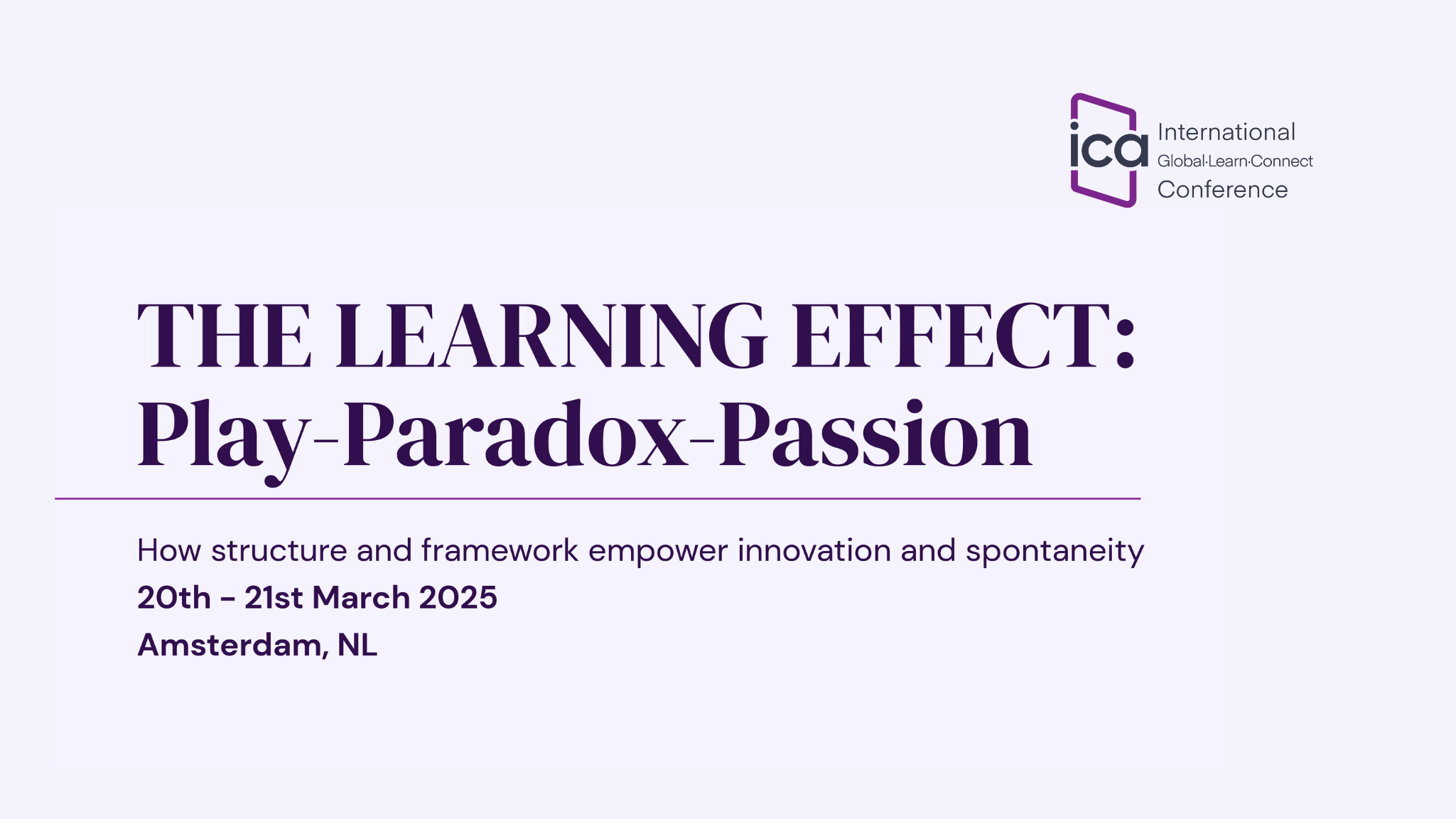We're excited to introduce you to our new Specialist Series, featuring interviews with educators on how best to improve learning.
Experts in the fields of neurology and education explain how the design and development of the International Middle Years Curriculum (IMYC) impact learning and the learner in middle years. The series will also feature the curriculum in action with interviews, advice and stories from IMYC teachers around the world.
There will be 12 episodes in total, available to watch on YouTube or listen to as a podcast, with new episodes released periodically over the next 6 months.
"I am really excited for the launch of this specialist series for the IMYC. The aim is to show Fieldwork's research and impact on learning through the lens of the Process to Facilitate Learning. Not only are educational experts interviewed on their research in the series, but we also wanted IMYC educators to be featured, sharing their ideas and experience. The learning community will certainly benefit from the in-depth discussions in the series which may spark further engaging conversations online and in schools." - Lee Hendricks, International Curriculum Manager – IMYC
EP.1: HOOKING THE LEARNER
The first episode explores the theory behind the Entry Point in the Process to Facilitate Learning. Neurologist and educator Dr Judy Willis is our feature guest, explaining the ways to get students engaged in their learning, how boredom affects the brain and behaviour in the classroom, and why teachers should pay more attention to the neuroscience of learning.
WATCH (Youtube) | LISTEN (Buzzsprout)
EP.2: THE ENTRY POINT IN PRACTICE
In our second episode, Lee Hendricks, Fieldwork Education's International Curriculum Manager for the Middle Years, interviews teacher and IMYC Coordinator Leighanne Small from Hillel Academy in Kingston, Jamaica on the best ways to plan, organise, and successfully execute an IMYC Entry Point within a school. The Entry Point is the way to kick off learning in a unit that is engaging, fun, and experiential for students. It is also a way for teachers to collaborate, link concepts among subjects, and promote planning as a group, so that middle school teachers do not find themselves isolated in their practice.
WATCH (Youtube) | LISTEN (Buzzsprout)
EP.3: ASSESSING KNOWLEDGE AND MISCONCEPTIONS
In our third episode, Lee Hendricks, Fieldwork Education's International Curriculum Manager for the Middle Years, interviews educational expert Jay McTighe. Jay discusses ways to differentiate in the classroom, how Understanding by Design can transform learning and teaching, and how important the Knowledge Harvest, or pre-assessment, is in the learning process. Jay also shares simple, effective strategies to assess knowledge along with misconceptions during the Knowledge Harvest.
WATCH (Youtube) | LISTEN (Buzzsprout)
EP.4: THE KNOWLEDGE HARVEST IN PRACTICE
In our fourth episode, Lee Hendricks, interviews teacher and IMYC coordinator Maria Koutsoupaki from Futuraskolan International School in Stockholm, Sweden. Maria shares what some of her best practices are in which to plan and implement a Knowledge Harvest, or what some may call a pre-assessment, within a school. Maria provides practical strategies on how to structure and incorporate technology with the Knowledge Harvest. She also addresses common errors that teachers typically make in the Process to Facilitate Learning and highlights the importance of revisiting
WATCH (Youtube) | LISTEN (Buzzsprout)
EP.5: RESEARCH, RECORD, REFLECT, AND REPEAT
In our fifth episode, Lee Hendricks, Fieldwork Education's International Curriculum Manager for the Middle Years, interviews educational expert Malcolm Nicolson to further explore the IMYC Process to Facilitate Learning, particularly with the mini-cycle of Research, Record, and Reflect that can be repeated several times to deepen knowledge, skills, and understanding. Malcolm talks about the importance of agency in the learning process, so students, according to him, feel that education is something done with them in mind rather than to them.
WATCH (Youtube) | LISTEN (Buzzsprout)
EP.6: THE SUBJECT LEARNING ACTIVITY CYCLE IN PRACTICE
In our sixth episode, Lee Hendricks, Fieldwork Education's International Curriculum Manager for the Middle Years, interviews interviews IMYC coordinator and teacher Danielle Mashon from the Nord Anglia International School of Rotterdam (NAISR) in The Netherlands. Danielle breaks down how the mini-cycle of Research, Record, and Reflect in the Process to Facilitate Learning looks and feels like in the classroom and why it should be repeated for students to gain more depth and understanding. Danielle’s thoughts and analysis are insightful as she shares her experiences and ideas of how you can better scaffold learning and encourage student agency within the classroom.
WATCH (YouTube) | LISTEN (Buzzsprout)
EP.7: ON FURTHER REFLECTION
In our seventh episode, Lee Hendricks, Fieldwork Education's International Curriculum Manager for the Middle Years, interviews educator, author, and the founder of the Freedom Writers Foundation Erin Gruwell about the power of reflection, relationships, and relevance in education. With her passion and commitment, Erin transformed her students’ lives – by picking up pens, reflecting on their own struggles and experiences, and capturing them in writing. This ultimately led to the successful publication of her students’ stories in a book called the Freedom Writers Diary and then in 2007, became the basis for a feature film starring Hillary Swank playing Erin Gruwell.
EP.8: OVERARCHING REFLECTION IN PRACTICE
In our eighth episode, Lee Hendricks, Fieldwork Education's International Curriculum Manager for the Middle Years, interviews teacher and IMYC coordinator Maurissa Horne at Precious Treasures International School in Turks and Caicos. Maurissa talks about the necessity of constant reflection and how it should be continuous both in the Research, Record, and Reflect mini-cycle to link subject tasks in the Process to Facilitate Learning along with the Overarching Reflection for each Big Idea. Reflection may not always come easy for students, as Maurissa points out, but with the right guidance, they can discover how concepts and ideas interlink, find personal meaning, and be agents in their own learning.
EP.9: EXITING WITH VALUABLE, BEAUTIFUL WORK
In our ninth episode, Lee Hendricks, Fieldwork Education's International Curriculum Manager for the Middle Years, interviews educational expert, Ron Berger, to find out why his passion has been focused on creating quality student work over many decades and the impact Ron's famous video of Austin's Butterfly has had as a symbolic model for critique and descriptive feedback in the classroom.
EP.10: THE EXIT POINT IN PRACTICE
In our tenth episode, Lee Hendricks, Fieldwork Education's International Curriculum Manager for the Middle Years, interviews teacher and IMYC coordinator Amanda Hart at the Khartoum International Community School in Sudan about the Exit Point. Amanda stresses the importance of planning for the Exit Point in advance, even before the unit begins, and how using collaborative technology tools and effectively organising the school timetable for meeting times are key to making the Exit Point a success.
EP.11: GETTING RIGOUR RIGHT
In our eleventh episode, Lee Hendricks, Fieldwork Education's International Curriculum Manager for the Middle Years, interviews educational expert Dr. Barbara Blackburn to find out what rigour is and what it looks and feels like in a classroom. Barbara provides great strategies to instantly use with students, particularly with a focus on the mathematics classroom, and debunks the myth that “rigour is not for everyone.” With rigour, according to Barbara, the expectations and support we set for students are paramount for results.
EP.12: IMYC MATHEMATICS IN PRACTICE
In our twelfth episode, Lee Hendricks, Fieldwork Education's International Curriculum Manager for the Middle Years, interviews educators Colin Gear and Pam Naylor who have been instrumental in designing and writing new creative tasks in mathematics to provide authentic links to nine Big Ideas in the IMYC. Pam and Colin explain what Model-Eliciting Activities (MEAs) are, how and when teachers should use them in the classroom, and ways to promote more rigour in the mathematics classroom.


